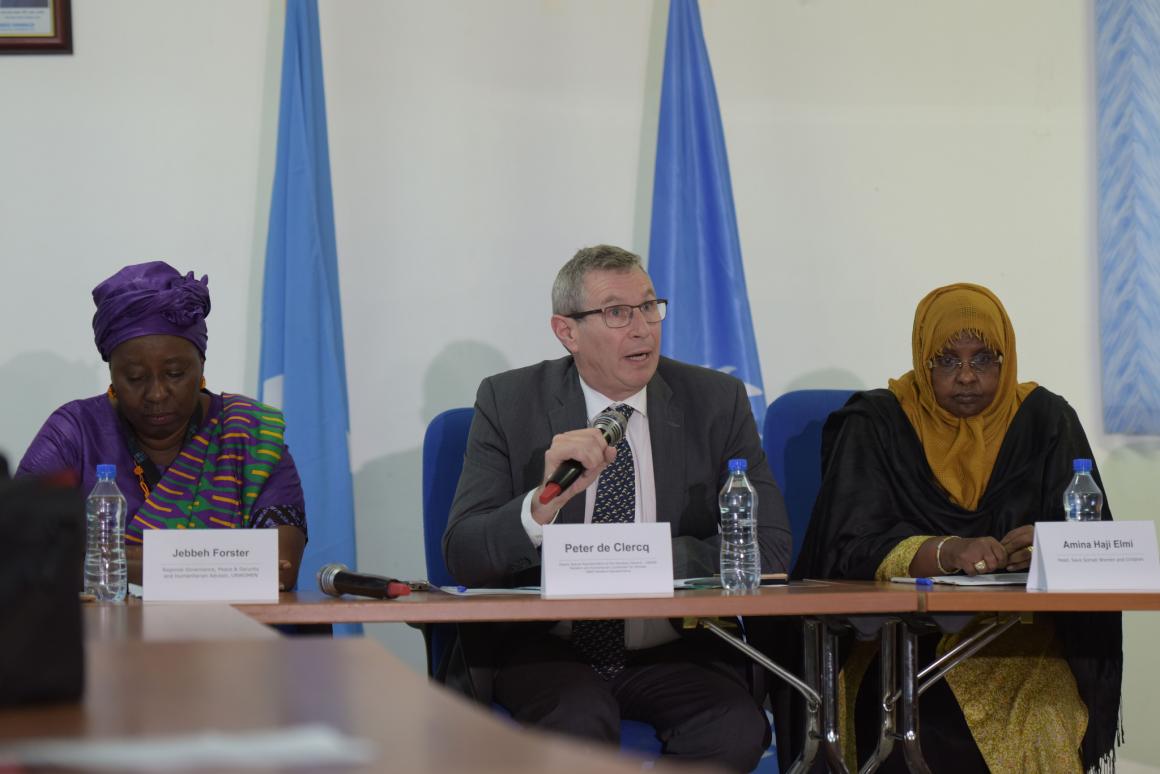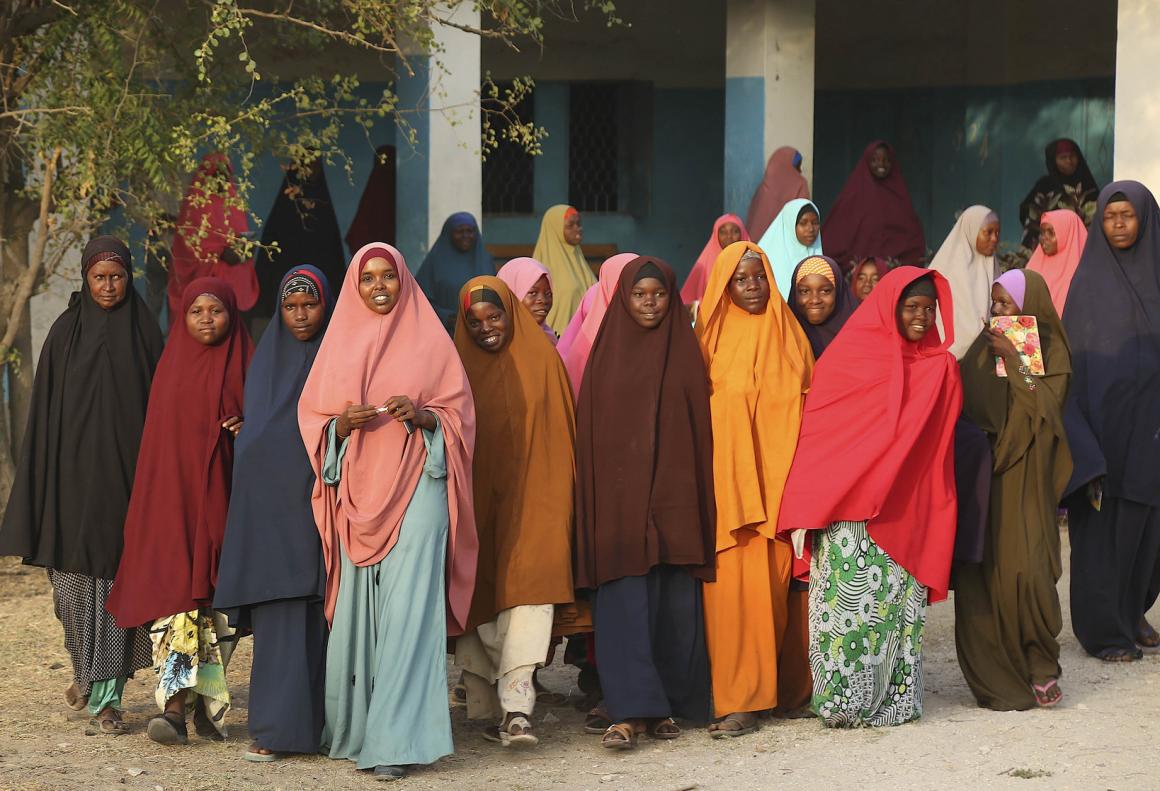Mogadishu - The annual 16-day campaign of activism against gender-based violence was launched at a press briefing today in the Somali capital.
Global in scope, the campaign seeks to raise awareness on the need to end violence against women and girls and is led by the UN Women agency with participation from the entire United Nations family, national governments, civil society and the private sector.
Jebbeh Forster, a UN Women Regional Policy Advisor on governance, peace and security and humanitarian action issues, said gender-based violence in Somalia has deepened the cycle of poverty for women and girls and hindered their empowerment.

“It is time to critically look at some of those things that put women and girls at a disadvantage,” said Ms. Forster.
The UN Secretary-General’s Deputy Special Representative for Somalia, Peter de Clercq, said more needs to be done to strengthen preventative measures and ensure that the necessary legal provisions and services are in place to discourage gender-based violence.
“Today, we call on the Federal Government of Somalia, the Federal Member States and all other national and international actors to play a vital role in creating awareness, providing legal and medical aid, and facilitating access to services to those who are the most vulnerable,” said Mr. de Clercq.
“The 16 days of activism campaign is a moment of reflection and renewed commitment to bolster organized efforts to root out gender-based violence, which is a gross violation of the human rights of women and girls. These violations must stop,” the senior UN official added.
The launch of the campaign coincides with today’s observance of the International Day for the Elimination of Violence against Women. The campaign will end on December 10, when International Human Rights Day is commemorated.
“As UN Women, we want to say that we stand with the women of Somalia, we stand with the women of Africa and we stand with women globally to end violence against women,” stated Ms. Forster. “It's a scourge that cuts across culture, it cuts across economic status, social status, and it is a global phenomenon. And unless there is a global coalition to end violence against women and girls, it will never end.”
The campaign will highlight numerous challenges facing women and girls in Somalia. Persisting conflict and humanitarian disaster are said to worsen already dismal indicators for women’s empowerment and gender equality. Out of the 4.2 million persons needing humanitarian assistance in Somalia, about half are women and girls. Humanitarian actors estimate that 2.6 million people are internally displaced in Somalia – and women and girls living in displaced communities are more vulnerable to gender-based violence than those living in stable communities.

Amina Haji Elmi, an activist who operates a sanctuary for women and girls affected by gender-based violence, emphasized the need for safe houses to protect vulnerable women. “Survivors should be housed at safe houses and provided with security, food and accommodation until their cases are solved and they are unified with their loved ones,” said the director of the Save Somali Women and Children Organisation (SSWC).
Fadwo Hassan, a Protection Coordinator with an organisation called HINNA that supports survivors of sexual violence, said that in her experience, most survivors do not seek justice in Somalia’s formal judicial system. These women and girls often opt instead for informal justice mechanisms that can spare them the ordeal of social stigmatization. “We have lawyers to negotiate if they want. But if they don’t want, we cannot force them,” she stated. “It is a survivor-centred approach that we utilise in our centres.”






